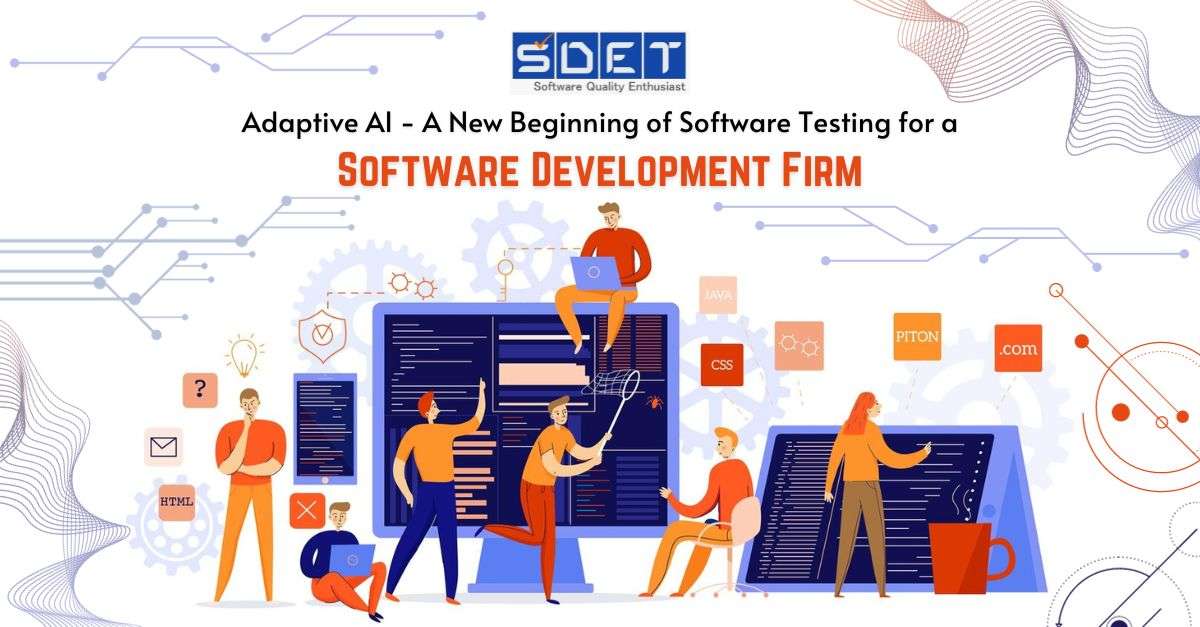
Adaptive AI – A New Beginning of Software Testing for a Software Development Firm
Client Background
A leading software development firm, was facing significant challenges in ensuring the quality and reliability of their software products. They were struggling to keep up with the ever-increasing complexity of their applications, leading to a growing number of bugs and longer testing cycles. Seeking innovative solutions to improve their software testing processes, they approached us for assistance.
Challenge
The company’s software development projects required a substantial amount of manual testing, which was time-consuming, prone to human errors, and not scalable. They needed a more efficient and accurate testing approach to identify and rectify defects early in the development cycle.
Solution
We at SDET introduced the concept of Adaptive AI in software testing to the frim, promising a new beginning in their quality assurance process. The solution comprised the following key elements:
AI-Driven Test Generation: We implemented adaptive AI algorithms to analyze software requirements and automatically generate test cases. This reduced the reliance on manual test script creation and ensured comprehensive test coverage.
Predictive Analytics: The adaptive AI system continuously collected and analyzed historical testing data to predict defect-prone areas in the code. This allowed the testing team to focus their efforts on the most critical parts of the application.
Automated Test Execution: AI-driven test scripts were executed automatically across multiple environments, saving time and ensuring consistent results. The system also integrated with the company’s Continuous Integration/Continuous Deployment (CI/CD) pipeline for seamless testing.
Defect Detection and Reporting: Adaptive AI algorithms were trained to identify and categorize defects, allowing for quicker issue resolution and reducing the time-to-market.
Feedback Loop: We established a feedback loop that continuously improved the AI algorithms, making them more adaptive and accurate over time.
Results
The implementation of Adaptive AI in software testing resulted in significant improvements for the company:
Accelerated Testing: Test cycles were reduced by up to 40% due to automated test case generation and execution.
Enhanced Test Coverage: AI-driven test cases provided comprehensive coverage, leading to better defect identification and elimination.
Reduced Defect Escapes: With predictive analytics and improved defect identification, the number of defects that reached production decreased by 30%.
Cost Savings: A substantial reduction in manual testing efforts and faster issue resolution led to cost savings of over 25%.
Increased Product Quality: The adaptive AI-driven testing process improved the overall quality of the company’s software products, resulting in higher customer satisfaction and lower support costs.
Conclusion:
SDET’s innovative implementation of Adaptive AI revolutionized the company’s software testing process. The new beginning in software testing enabled them to significantly reduce testing cycles, improve test coverage, reduce defect escapes, and ultimately enhance their product quality. This case study showcases the immense potential of Adaptive AI in the field of software testing and its ability to drive efficiency and reliability in software development.
